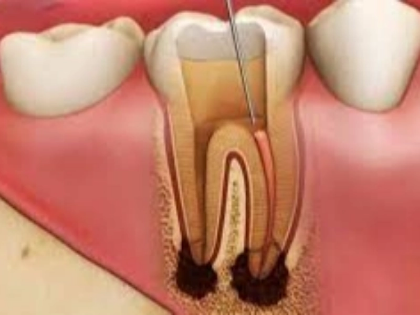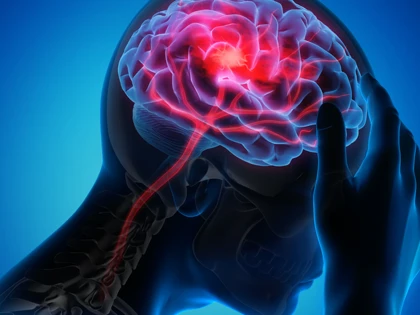How long can a dental infection go untreated?
How long will a dental infection last if untreated? A dental infection can include fever, swollen neck glands, bad breath, sensitivity to hot and cold foods, throbbing or constant tooth pain, and difficulty biting. If the infection is left untreated, it can spread to other parts of the body with dangerous or fatal consequences. Possible side effects may include meningitis, Ludwig's angina, and sepsis (blood poisoning). It is important to complete the full course of antibiotics as directed to ensure the infection is eradicated.
1. Index

2. Pathogens
 Dental infection is a dangerous disease that should not be taken lightly. It can cause a variety of symptoms such as throbbing toothache, fever, enlargement of the jawbone, etc. Moreover, it can spread to nearby tissues and cause serious health problems.
If you notice any symptoms of a tooth infection, it is essential to see a dentist right away. After examining your mouth, your dentist will drain the abscess and perform a root canal to repair it. To further prevent future infections, the tooth will be filled, sealed, and then capped with a crown.
If not treated immediately, oral infections can progress to a deadly stage known as sepsis. This occurs when the infection spreads to other areas of the body, causing blood pressure to drop and leading to failure of vital organs such as the kidneys, liver and lungs. If it reaches the brain, it can also be fatal.
Dental infection is a dangerous disease that should not be taken lightly. It can cause a variety of symptoms such as throbbing toothache, fever, enlargement of the jawbone, etc. Moreover, it can spread to nearby tissues and cause serious health problems.
If you notice any symptoms of a tooth infection, it is essential to see a dentist right away. After examining your mouth, your dentist will drain the abscess and perform a root canal to repair it. To further prevent future infections, the tooth will be filled, sealed, and then capped with a crown.
If not treated immediately, oral infections can progress to a deadly stage known as sepsis. This occurs when the infection spreads to other areas of the body, causing blood pressure to drop and leading to failure of vital organs such as the kidneys, liver and lungs. If it reaches the brain, it can also be fatal.
3. Management
 A dangerous disease that can lead to real health problems is a dental infection. An infection originating from the nerve tissue inside the tooth can infect the tissues around the tooth and even the bloodstream. This can lead to sepsis, a potentially fatal disease. Further consequences include meningitis, cavernous sinus thrombosis, and Ludwig's angina (blood clots in the sinuses).
Your dentist may prescribe antibiotics to eliminate bacteria and reduce inflammation. Antibiotics should always be taken exactly as prescribed. Not completing the entire treatment can make the infection more difficult to treat and may lead to antibiotic resistance.
Dental abscesses or apical dental infections may be treated with extraction, root canal therapy, or incision and drainage. In extreme circumstances, infections may need to be managed with antibiotics such as carbapenems such as meropenem, piperacillin-tazobactam, or fourth-generation cephalosporins. While waiting to see a doctor, home treatments such as taking antibacterial foods, applying cold compresses, and washing with salt water or hydrogen peroxide may help reduce discomfort and swelling.
A dangerous disease that can lead to real health problems is a dental infection. An infection originating from the nerve tissue inside the tooth can infect the tissues around the tooth and even the bloodstream. This can lead to sepsis, a potentially fatal disease. Further consequences include meningitis, cavernous sinus thrombosis, and Ludwig's angina (blood clots in the sinuses).
Your dentist may prescribe antibiotics to eliminate bacteria and reduce inflammation. Antibiotics should always be taken exactly as prescribed. Not completing the entire treatment can make the infection more difficult to treat and may lead to antibiotic resistance.
Dental abscesses or apical dental infections may be treated with extraction, root canal therapy, or incision and drainage. In extreme circumstances, infections may need to be managed with antibiotics such as carbapenems such as meropenem, piperacillin-tazobactam, or fourth-generation cephalosporins. While waiting to see a doctor, home treatments such as taking antibacterial foods, applying cold compresses, and washing with salt water or hydrogen peroxide may help reduce discomfort and swelling.
4. Healing
 In most cases, dental infections are incurable, so the earlier you start to notice the signs, the better, so you can treat the disease before it spreads to other areas of the body.
Untreated dental infections can lead to life-threatening medical situations, including sepsis (a potentially fatal illness in which bacteria enter the bloodstream and damage organs), meningitis (a serious infection of the brain and spinal cord), and Ludwig's angina (a serious bacterial infection under the tongue).
Thankfully, dental infections rarely progress to this stage. The majority of patients are treated before a dental abscess develops. If you experience symptoms of a severe infection, such as fever, vomiting, diarrhea, or difficulty breathing, contact emergency medical services immediately. Even if the infection reaches this stage, it is often treatable with a combination of antibiotics, root canal therapy, or surgical removal of the affected area.
In most cases, dental infections are incurable, so the earlier you start to notice the signs, the better, so you can treat the disease before it spreads to other areas of the body.
Untreated dental infections can lead to life-threatening medical situations, including sepsis (a potentially fatal illness in which bacteria enter the bloodstream and damage organs), meningitis (a serious infection of the brain and spinal cord), and Ludwig's angina (a serious bacterial infection under the tongue).
Thankfully, dental infections rarely progress to this stage. The majority of patients are treated before a dental abscess develops. If you experience symptoms of a severe infection, such as fever, vomiting, diarrhea, or difficulty breathing, contact emergency medical services immediately. Even if the infection reaches this stage, it is often treatable with a combination of antibiotics, root canal therapy, or surgical removal of the affected area.












